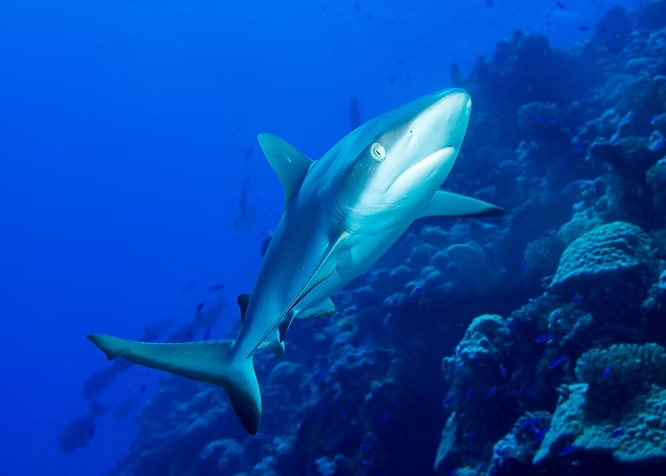Reef Sharks: The Overlooked Guardians of Coral Reefs
Reef sharks rarely receive the same admiration as their great white cousins. Ranging between five and ten feet in length, these sharks spend their days patrolling coral reefs and feeding on small fish, squids, and crustaceans. Yet, their quiet existence and lack of dramatic hunting scenes often leave them in the shadows of more notorious shark species.
The Vanishing Presence of Reef Sharks
Coral reef biologist Alan Friedlander of the University of Hawaii notes that after 25 years of studying reefs in the Caribbean, he can barely recall the last time he saw a shark. This scarcity raises pressing questions: are reef sharks disappearing due to human impact, or were they always few in number?
Research Findings on Human Impact
A team of marine biologists set out to measure reef shark populations across the Pacific islands. Their findings were alarming:
- Reef shark density is only 3–10% of what it would be without human presence.
- Even 100 people living within 200 kilometers of the coast drove most sharks away.
These results suggest that human activity, even at modest levels, dramatically alters shark populations and behavior.
Potential Causes of Decline
The disappearance of reef sharks likely stems from several intertwined factors:
- Fishing and Finning: Recreational fishing and illegal shark finning kill an estimated 26 to 73 million sharks annually.
- Declining Prey: Overfishing and habitat destruction reduce populations of reef fishes, leaving sharks without sufficient food.
- Human Disturbance: Sharks may simply avoid areas with high human presence, retreating to isolated reefs.
Interestingly, the researchers found more sharks than expected at small, remote reefs. However, this clustering poses new risks, as concentrated populations could be quickly overfished.
Conservation Lessons
The study, published in Conservation Biology, underscores an important reality: sharks are far more threatened by humans than we are by them. While they are often cast as villains of the sea, reef sharks play a vital ecological role in maintaining the balance of coral reef ecosystems.
Looking Forward
Protecting reef sharks requires a deeper understanding of their behavior and vulnerabilities. From enforcing fishing regulations to safeguarding reef habitats, every effort is essential in ensuring that these overlooked guardians continue to thrive. By shifting perceptions from fear to reverence, we can begin to secure a healthier future for both sharks and coral reefs.

